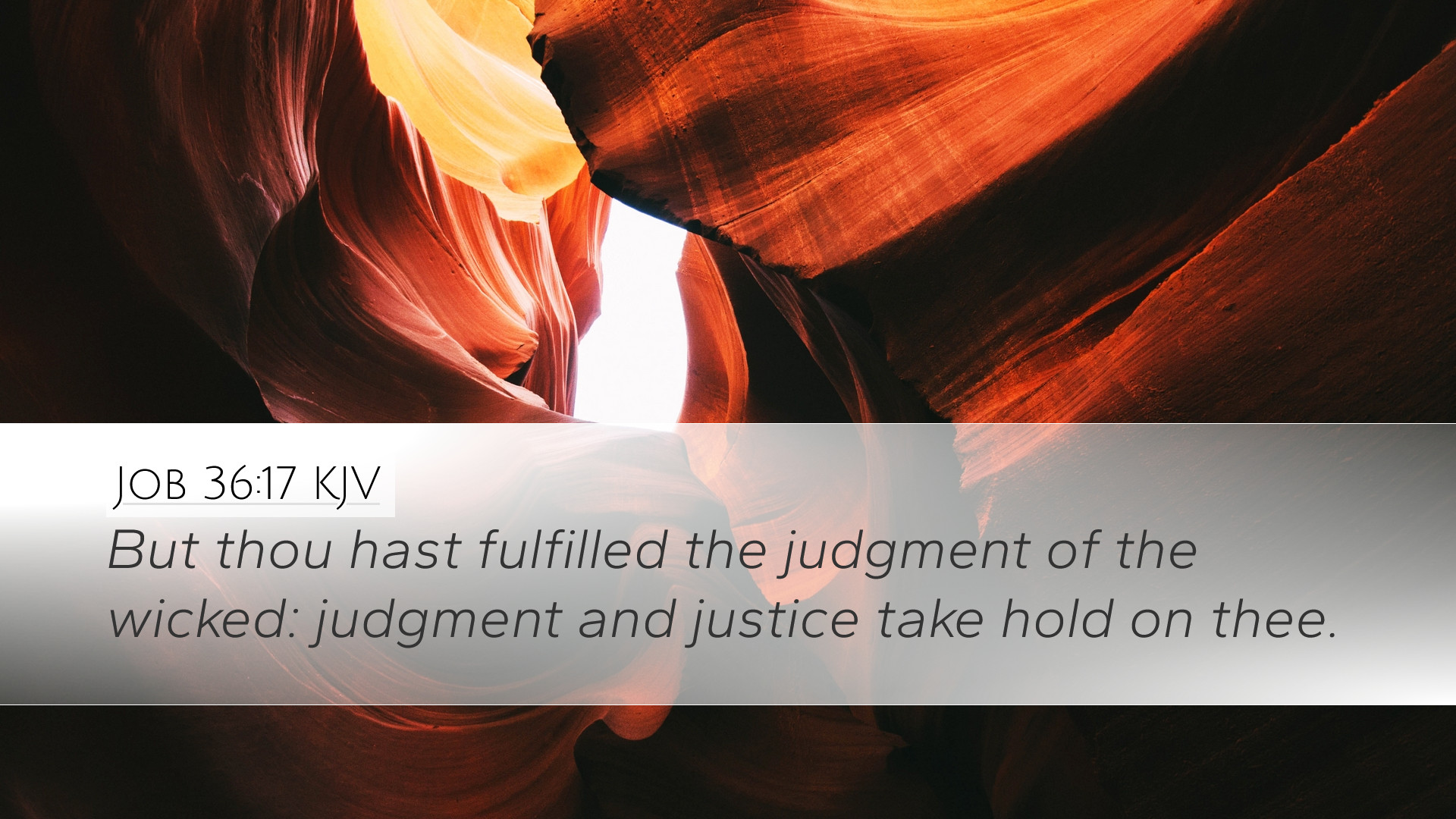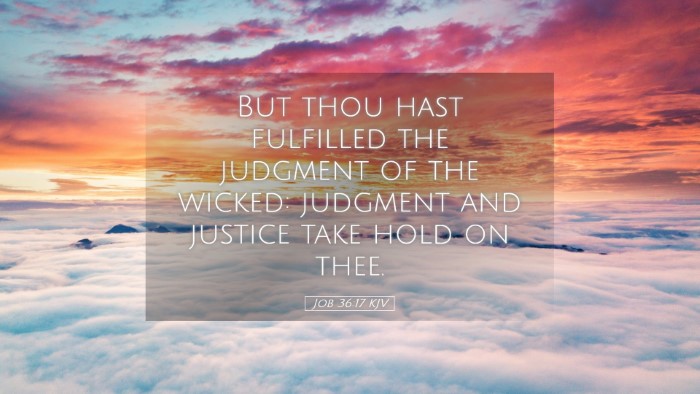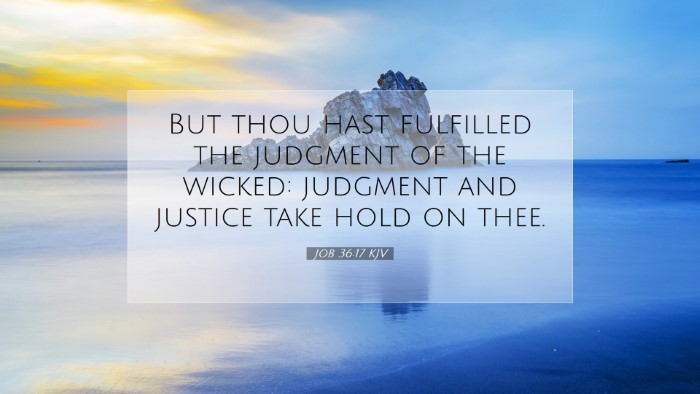Commentary on Job 36:17
In Job 36:17, we find a profound statement regarding divine justice and the moral order established by God. This verse reads:
"But thou hast fulfilled the judgment of the wicked: judgment and justice take hold on thee."
This commentary synthesizes insights from various public domain commentators including Matthew Henry, Albert Barnes, and Adam Clarke.
Contextual Analysis
The Book of Job, a poetic exploration of suffering and the nature of righteousness, presents Job as a man of integrity facing unbearable trials. In this verse, the speaker, most likely Elihu, references the fate of wickedness juxtaposed with the divine justice that ultimately prevails. Understanding the context is essential as it informs the interpretative framework of this verse.
The Nature of Divine Judgment
Matthew Henry emphasizes the theme of divine judgment throughout the book of Job, illustrating how God’s judgments are both just and necessary. He notes:
“The judgments of God are a great part of the divine administration. They are the means by which He upholds righteousness and punishes wickedness.”
Henry’s commentary suggests that the phrase "fulfilled the judgment of the wicked" indicates that while wickedness may temporarily seem to flourish, justice will inevitably prevail, aligning with God's sovereign will.
Justice and Righteousness
Albert Barnes highlights that Elihu is here stating a fundamental truth regarding justice. He elaborates:
“Judgment and justice take hold of thee represents a divine reality wherein the believer who strays into wickedness finds himself ensnared by the very justice he disregards.”
This concept suggests a dual aspect of justice—one that both judges and redeems. It serves as a reminder that those who turn against God's commands ultimately face the consequences of their actions.
Application of the Judgment of God
Adam Clarke’s commentary adds a pastoral dimension to the discussion. He states:
“The application of God's judgment is not merely punitive; it is restorative, aiming to correct the errant. Thus, justice does not simply condemn but seeks to bring back the wayward.”
This informs us that the purpose of divine justice extends beyond mere punishment. Rather, it seeks the restoration of righteousness, serving as an invitation to repentance and renewal for the sinner.
Contrast with Wickedness
- The Temporary Nature of Wickedness: Both Henry and Barnes agree that while wickedness may prosper for a time, it is temporary. God's judgment will eventually manifest and set things right.
- The Assurance of Justice: Clarke reassures believers that God's justice is unwavering and that it can be relied upon to bring truth to light.
- The Role of Suffering: Henry points out that suffering may be a tool through which God administers justice and brings about repentance and humility.
Conclusion
In conclusion, Job 36:17 conveys a critical reflection on God’s inherent justice. The verse serves as a powerful reminder to all individuals—whether pastors, theologians, or laypeople—that divine judgment encompasses both punishment and the opportunity for redemption. As Elihu speaks, he encapsulates a profound truth that resonates throughout scripture: God is both just and merciful. Each commentator brings richness to this understanding, reminding us that in the face of adversity or moral dilemma, the judgments of God reveal His character and ultimate purpose for humanity.
Thus, it is essential for us to seek God’s justice and embrace the lessons learned through trials, as they guide us back to Him and reinforce our understanding of His righteous nature.


